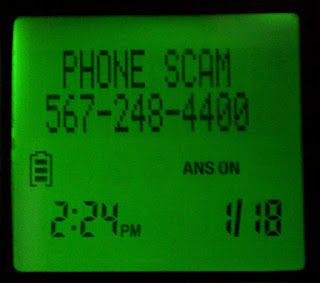I was asked to be part of a "spooky" author panel this year. I read the following short story:
The
Coffin
Note: This is a retelling of a
classic Halloween story.
I
was looking forward to the peace and quiet. It had been three days since my
wife and kids had left to visit her parents. We had three daughters, all under
the age of four, so moments when a baby wasn’t crying, screaming, or banging on
something were rare.
The
first two nights were wonderful. I came home with fast food, turned on some
loud music, and sang at the top of my lungs without fear of waking up whatever
child was asleep at the moment.
The
third night, however, was something completely different. It was late October
in New England. There were a few leaves that still clung onto the trees for
dear life, but most had given in to peer pressure.
I
was sitting in our living room, watching TV and relaxing after a long day at
work. A storm had rumbled in during the day and covered the sky. Although it
wasn’t raining, wind was blowing steadily, and the heavens were lit now and
again with streaks of lightning followed by growling thunder.
The
TV show was about to end when the power went out. No power meant no TV, no
computer, no internet … nothing. I remembered thinking, What had people possibly done at night before electricity? I sat
there for a moment debating my next move. I decided to light a candle and read—even
though flickering light gave me headaches.
I
tried to remember where my wife kept the candles and matches when there was a thump on the front porch.
It
sounded like something heavy landed on the porch. I thought it was probably a
branch that had broken off in the storm. I was about to get out of my chair to
investigate when there was a loud bang
against the front door.
I
froze in place, the hair on the back of my neck bristling. That couldn’t have
been a branch. Someone, or some THING,
had hit the door. I sat there, hands gripping the armrests and listened.
There
were no other sounds aside from the howling wind. And to think, I had been
looking forward to a quiet night.
Nothing
happened for several moments aside from the occasional flashes of lightning. It
took me a moment to realize that even though I was seeing the lightning, the
thunder had stopped, though the storm had increased in its fury.
Finally,
I gathered my courage. I decided I was not going to let things that went “bump”
in the night get the best of me. I took a deep breath and stood.
At
that very moment, the front door burst open with such force that it ripped off
its hinges. In the doorway, silhouetted by the lightning, was a coffin. It was
deep black in color—so dark, in fact, it seemed to swallow the light around it.
I
tried to will my feet to move, but they wouldn’t. I tried to look away, but my
eyes stayed locked on the coffin. I tried to scream, but the sound wouldn’t
come.
Slowly,
the coffin tilted up, as if someone was standing it on edge. I couldn’t move. It
continued to rise until it stood up completely.
Thunder
sounded so powerfully that I thought the windows would break. It was as if all
the thunder for the last few minutes had been stored up and released at once.
At that same moment, the coffin lid swung open. It was empty.
For
the briefest of moments, I was relieved. Part of my fear came from what could
be in the coffin. That relief soon
vanished as the coffin slowly, purposefully, moved toward me.
Whether
it was the coffin moving, or the thunder sounding, I’m not sure, but I was able
to get my body to move. I ran to the closest room in the house—our bathroom. I
locked the door and backed up into the tub, the only window to the room at my
back.
I
could hear the coffin scraping along the floor as it continued to approach. I
realized that coming to the bathroom left me few options. The window was too
small for me to fit through. There was nowhere I could go.
My
mind raced. What could I do? What was the old saying? Fight or flight. I had
tried fleeing and that hadn’t worked. I was left with the only other option. I
looked around the bathroom, catching glimpses of objects here and there when
the lightning briefly lit the room. I needed something heavy to use.
There!
On the countertop was a large bottle of Robitussin. I took one step out of the
bathtub and grabbed it. There was a loud bang
at the bathroom door, but it stayed closed.
I
retreated back to the tub, wielding my new weapon as if it was Excalibur.
Again,
the lightning came, but no thunder. I stared at the door. I could feel my heart
pounding in my chest.
Nothing
happened for a long, drawn-out moment. I thought, Maybe it went away. Maybe it
could sense I was going to defend myself.
The
bathroom door crashed open and there was the coffin, the lid still open. It
seemed to pause for a moment, and then again it started to move toward me.
With
all my strength, I threw the bottle of Robitussin. The coffin stopped.





































